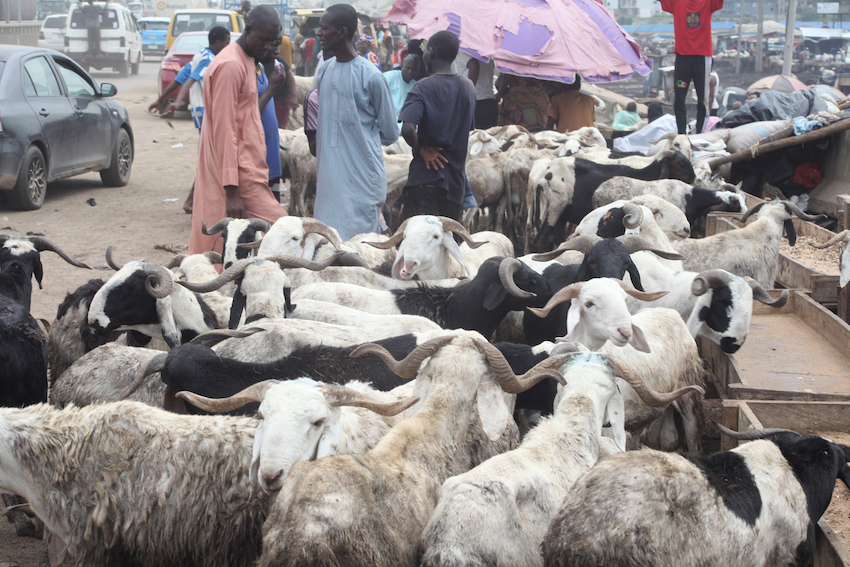As today marks Eid-ul-adha celebration, some Muslims in Lagos State have said they would celebrate Sallah with no ram because of the exorbitant prices of livestock. This casts a shadow over the festive season despite its religious significance.
Findings by New Daily Prime revealed that the low sales and high prices are mainly linked to the ongoing closure of the Nigeria-Niger border, which has disrupted the regular supply of livestock.
This, combined with widespread economic hardship and rising inflation, has made it nearly impossible for traders to offer affordable prices, forcing many potential buyers out of the market.
In a price survey conducted by our correspondent at key livestock markets in in the state, particularly Alaba Irago Market, ram prices ranged from ₦200,000 to ₦800,000, with the lowest-priced ram going for ₦200,000.
Along Okokomaiko, Badagry Expressway, Yunus Fasasi, a resident, told our correspondent that the prices of ram could not afford him to buy this year.
He, “It is painful that I can’t afford to buy a ram for me and my family to celebrate sallah. Some years ago, I buy ram effortlessly but this time around if I try it, I will go bankrupt. But I will just manage with my family and I pray Allah help me. it is not do or die.”
Read Also: Emir of Kano cancels Eid-el-Fitr Durbar celebration over security concerns
Similarly, Kaburi Yemi lamented, “The situation is tough. With the current prices, many families simply can’t afford the traditional Eid sacrifice this year. Things have only gotten worse since the fuel subsidy was removed in 2023.”
Another resident, Fatimah Kasali, said, “The prices this year differ from those of last year. They range from ₦200,000 to ₦750,000 for rams. My husband couldn’t buy due to the high cost.”
Also, Waheed Bakare, said she had to redirect her savings to food and basic needs instead. “We’ll celebrate in our own small way. It’s sad, but survival comes first this year.”
Meanwhile, a trader, who only identified as Suleiman, who sells livestock at the market, expressed concern over low patronage.
He noted, “We brought in fewer rams this year because we knew many people wouldn’t be able to buy. Even with fewer animals, we’re struggling to sell.”
By Adeniyi Yusuf



